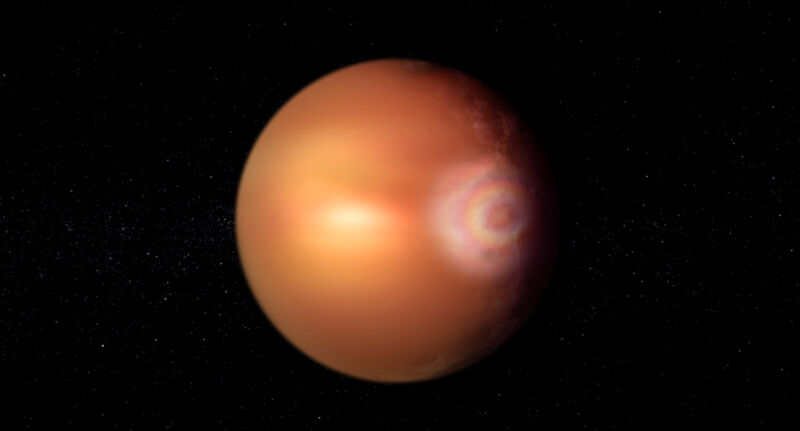Glow of an exoplanet may be from starlight reflecting off liquid iron

Enlarge / Artist impression of a glory on exoplanet WASP-76b. (credit: ESA)
Do rainbows exist on distant worlds? Many phenomena that happen on Earth-such as rain, hurricanes, and auroras-also occur on other planets in our Solar System if the conditions are right. Now we have evidence from outside our Solar System that one particularly strange exoplanet might even be displaying something close to a rainbow.
Appearing in the sky as a halo of colors, a phenomenon called a "glory" occurs when light hits clouds made up of a homogeneous substance in the form of spherical droplets. It might be the explanation for a mystery regarding observations of exoplanet WASP-76B. This planet, a scorching gas giant that experiences molten iron rain, has also been observed to have more light on its eastern terminator (a line used to separate the day side from the night side) than its western terminator. Why was there more light on one side of the planet?
After observing it with the CHEOPS space telescope, then combining that with previous observations from Hubble, Spitzer, and TESS, a team of researchers from ESA and the University of Bern in Switzerland now think that the most likely reason for the extra light is a glory.